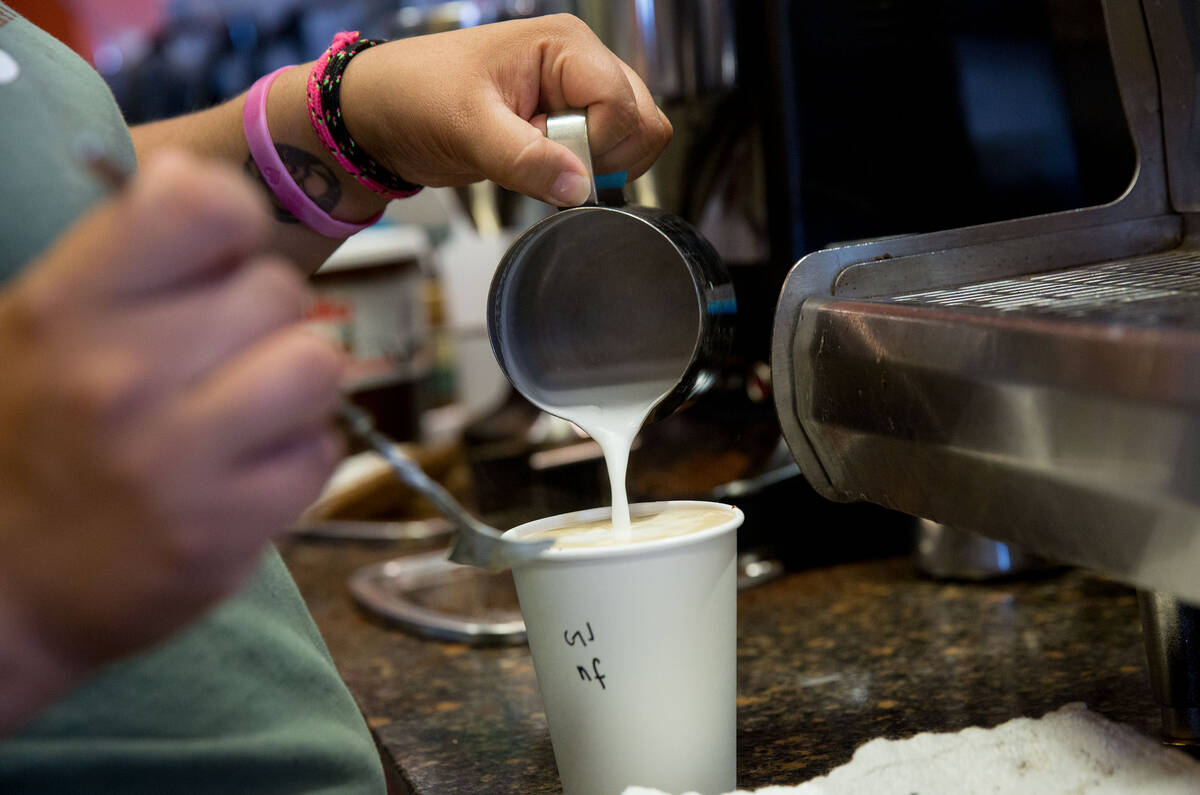Las Vegas restaurants criticize proposed 27% fee hike
Restaurants and other food operations in Southern Nevada say that a proposed 27 percent across-the-board hike in health inspection and permitting fees would deal a crushing blow to businesses struggling to get back on their feet after pandemic downturns.
“We are just now hiring back our team that was furloughed in March 2020,” said Astor Chocolate’s Tori Halfon, who estimated her business would see an increase of $500 in annual fees for the inspections that take roughly half an hour at their warehouse.
“With inflation, and costs of goods and salaries, we are struggling,” Halfon said in comments that are included in the Southern Nevada Health District’s business impact statement for the fee proposal.
And businesses say they can’t simply pass on the increases to their customers.
“There’s only so much people will pay for a chocolate bar,” Halfon said.
Yet the health district, whose Board of Health will consider the fee hike Thursday, says that an increase in its environmental health fees is long overdue. The last increase was in 2009, despite growing inflation and expenses. The district’s environmental health division, which is funded by the fees, projects $23.04 million in expenses for the next fiscal year but just $20.24 million in revenue, for a shortfall of $2.8 million. The proposed increase would reduce the shortfall to $45,000.
The higher fees would apply to permits for a range of operations, including restaurants, residential septic systems, recycling centers, spas, tattoo parlors, schools with kitchens and more.
Different facilities pay differing amounts in fees. Momofuku’s Victor Ratliff said the restaurant paid $1,727.64 in health district fees last year. “Increased fees will hamper our ability to operate and thrive as we hopefully emerge from the crippling effects of the pandemic,” he said.
To ease the burden, the district is proposing that businesses pay the previous year’s fee amount at the start of the new fiscal year in July and the increase three months later.
‘Timing and magnitude … is challenging’
When the health district first proposed the fee increases in 2019, it was met with a chorus of objections, including from the restaurant, retail and resort associations, who asked for clearer data to support the proposal, as well as mom and pop businesses.
A pandemic interlude of 2½ years seemingly hasn’t made the proposal any more popular. Of the businesses that responded to a health district survey, 69 said the fee increases would place a direct and significant economic burden upon their business.
Thirty-seven said the hikes would not pose an undue burden.
“We are very happy with the rigorous approach that you take with regard to keeping our restaurants safe,” said Feel Good Brands’ Lincoln Spoor. “We stumble at times but we always know that you are doing what you need to do.”
Of the 106 businesses responding to the survey, just six estimated that fees would have a beneficial economic effect on their business.
The district notes that the fees support critical services that minimize the potential for foodborne illness, prevent hazardous waste from getting into the environment, and generally promote health and safety.
However, the Nevada Resort Association, which represents the resort and gaming industry, has questioned why fees pay for programs unrelated to the inspections or permitting. As a concession, the health district decreased the initial proposal of a 29 percent hike to 27 percent, removing an increase for the vector control program, which includes community mosquito abatement.
Citing Las Vegas Visitors and Convention Authority statistics, the resort association notes that despite increased gaming revenue, visitation remains down by 18 percent from 2019, convention business by 41 percent, and midweek occupancy by 24 percentage points. This affects resort restaurants, which are facing increases of as much as 18 percent for certain meats, poultry and eggs, the association’s president, Virginia Valentine, said in a letter included in the business impact statement.
“The timing and magnitude of the fee increase is challenging for operators trying to recover from this difficult period,” Valentine wrote.
In turn, the health district presents economic statistics of its own that indicate an improving economy. It notes that Nevada ranks first in the nation for economic momentum, according to a state policy report from Federal Funds Information for States, ranking high for growth in personal income, population and employment.
But these statistics provide little comfort to struggling businesses.
“I simply think this is ridiculous,” said Pasquale Romano, owner of Squally’s Cafe. “Whoever is thinking of passing this has no heart whatsoever for the sacrifices small businesses make.”
The current proposal also would implement automatic annual fee increases tied to the consumer price index. The resort association expressed “deep reservations” about such an approach, which it said “lacks public accountability.”
With an onslaught of increasing costs, some businesses said staying in business would not be easy.
“We can’t have any more extra expenses,” said Mg Patisserie LLC’s Michael Gillet, who estimated an indirect business impact of $3,000 from the proposed increases. An indirect business impact might include restricting the operation or expansion of a business.
What would his patisserie and cafe need to do to cope? Sell $3,000 more in croissants, he said.
Contact Mary Hynes at mhynes@reviewjournal.com or 702-383-0336. Follow @MaryHynes1 on Twitter.
Upcoming meeting
The Board of Health meeting is scheduled to begin at 9 a.m. Thursday at the Southern Nevada Health District, 280 S. Decatur Blvd., in Red Rock Trail Rooms A and B. Information on attending by Webex or by calling in can be found at southernnevadahealthdistrict.org/meetings.























